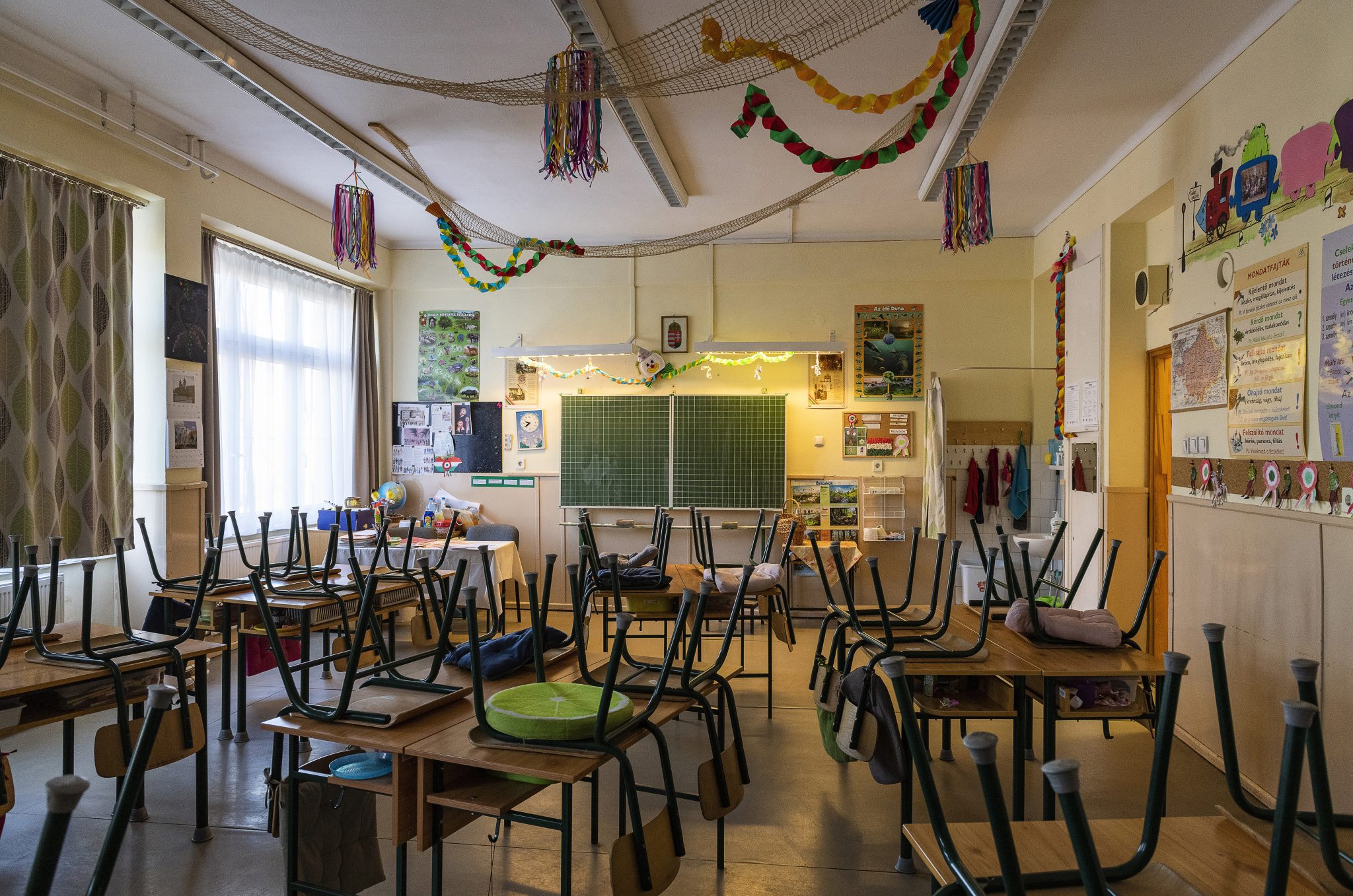
The action will also be aimed at supporting the wage talks of the member unions of the association, the Hungarian Association of Trade Unions said.Continue reading

Two lessons will be dropped from schoolchildren’s timetables on Monday, as the two biggest teacher’s unions are organizing a nationwide warning strike between 8 and 10 am on January 31st to raise awareness of low teacher’s wages.
Teachers’ organizations announced a 2-hour strike for Monday morning. However, the government expects teachers to teach even during the strike, arguing that minimum service must be provided during that time period. The government also says that otherwise the strike would violate students’ rights to education.
The two big teacher’s unions that organized the strike, the Democratic Union of Hungarian Teachers’ (PDSZ), and Teacher’s Union (PSZ), do not accept this and are waiting for the court to decide what counts as “still sufficient service,” and whether teaching should continue during the strike. László Kisfaludy, the deputy state secretary negotiating on behalf of the government, waited two days after the latest strike negotiations on Monday to say that they would maintain their previous position, that they believe it is a violation of students’ right to education if institutions only provide childcare during the strike. “The government is now openly sabotaging the organization of the strike,” the PDSZ wrote on their website.
The PDSZ and PSZ are already demanding a 45% increase in basic salaries this year. They also point out that despite the Orbán cabinet’s promises, teachers’ basic salaries have not risen since 2014, which by now equals a debt of 17 months’ salary the government owes to teachers.
However, in this case, they would have to work for free, as those on strike are not paid, the unions argued, also pointing out that this would just decrease the strike’s efficacy in increasing awareness. Therefore, this condition is unacceptable for them.
Earlier, the EMMI also wrote in a statement that “It is clear that the teacher’s strikes announced for January and March are a campaign by the Left.” However, the unions denied this and said that “Neither the PDSZ nor the PSZ is or has ever been involved in electoral campaigning, nor is it affiliated with any political party.”
Erzsébet Nagy, a member of the PDSZ national executive committee, told 444 that in many places, headmasters are also trying to hold back the strike committees.
“Heads of institutions are trying to prevent strikes in quite creative ways,” he said. For example, they don’t allow the strike committee to use the school’s IT system, so notices cannot go out to parents, and teachers cannot send reports on the expected number of strikers to the school district from their official school email address.
There are also cases where the headteacher informs parents about sending their children to supervision during the strike, but the PDSZ says that there is no legal basis for this because childcare is not a school program and there is no compulsory obligation to call in pupils. According to Nagy, this move is intended to “hide the strike, to make it invisible.” The trade unions are asking parents to bring their children in only for the third lesson, at 10 o’clock.
Nagy added that as a union, they only receive the problematic cases, and there are schools where the headmasters are in fair consultation with the strike committee.
The unions are launching their protest with significant support: the PDSZ is receiving a constant stream of signatures from teachers and even entire teaching staffs. According to Tamás Totyik, vice-president of the PSZ which also collects signatures, a warning action of similar magnitude to the 2016 strike is expected.
It may seem that we are only dissatisfied with our salaries, but in fact, the problem is much bigger,”
he told Magyar Hang, explaining that the low salaries of teachers threaten the whole of Hungarian public education. Older generations are leaving the profession: 22,000 kindergarten and school teachers will retire in the next five years, while there are hardly any replacements because of the humiliatingly low salaries and the workload.
Péter Horváth, President of the National Teacher’s Chamber, which was established by the government but repeatedly acts as a sovereign organization, agrees with the teachers’ wage demands but considers the date chosen for the strike unfortunate: the current government will not raise salaries, as it has declared that this will only happen next year. If there is a change of government in April, it will create a completely new situation – but the opposition coalition is not currently affected by the strike demands.
The Szülői Hang (“Parental Voice”) community, which has more than 50,000 followers on Facebook, is asking all its members to support the strike: if they can, keep their children at home for these two hours and take on the temporary care of some of their children’s classmates. If Monday’s warning strike is not successful, the two unions are planning another strike on March 16th.
Source: Magyar Hang, 444
Featured photo illustration by Attila Balázs/MTI